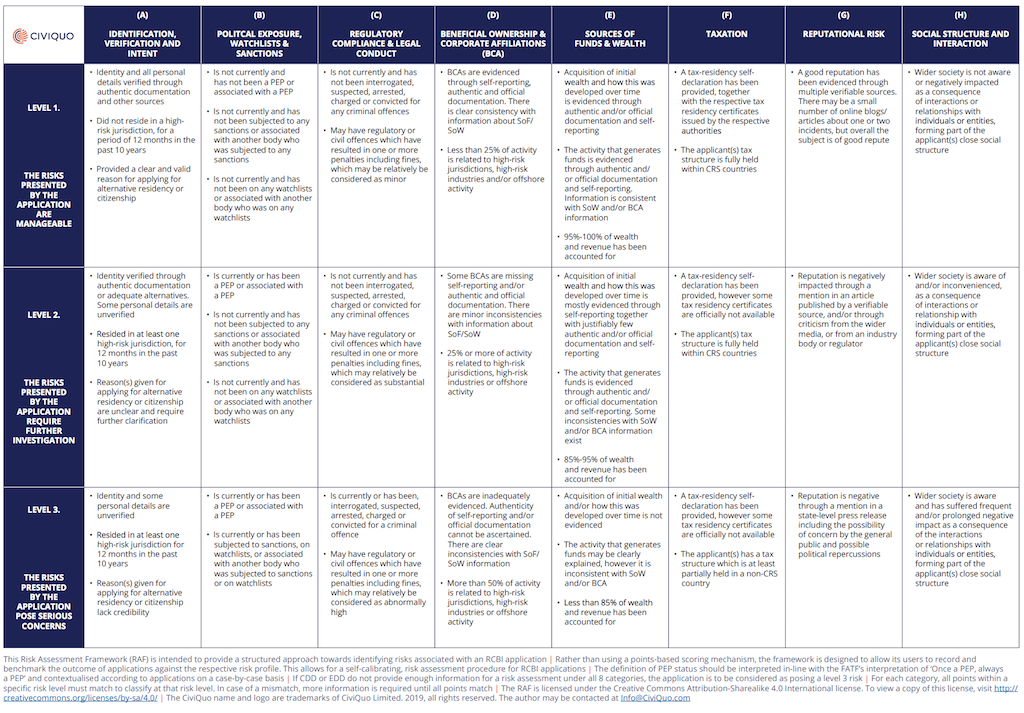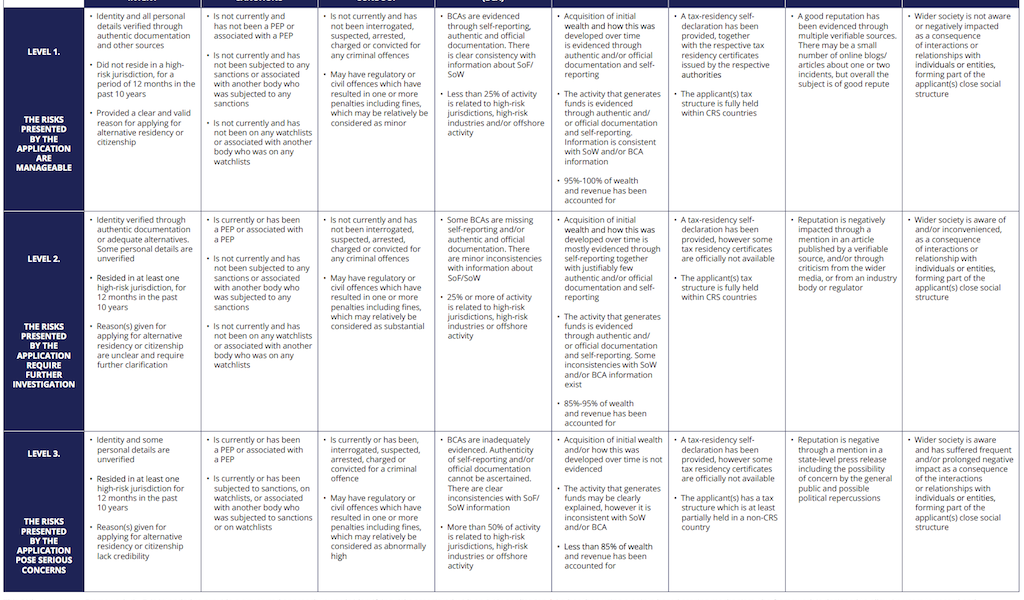Improving Applicant Approval Rates With a Standardized DD Framework
Citizenship by investment units (CIUs) and RCBI-firms across the globe each conduct due diligence on CIP-applicants, using their own – often opaque – procedures. Now, one company aims to propagate a standardized, open-source, 8-step risk assessment framework to allow anyone to reliably identify the relative risk of taking on an applicant.
The Civiquo Risk Assessment Framework (RAF) enables anyone – CIUs, service providers, researchers, or government entities – to “systematically and objectively review applications” that the company’s CEO – Yakof Agius – says can help improve approval rates among applicants, as well as weed out in advance those applicants that won’t qualify.
“Something as important as due diligence within our industry, should not be kept under wraps,” Agius tells IMI. “It needs to be shared, researched and improved upon. We feel that sharing the RAF as open source, kickstarts the process.”
The RAF consists of eight categories of assessment:
- Intent, identification, and verification
- Political exposure, watch-lists, and sanctions
- Regulatory compliance and legal conduct
- Beneficial ownership and corporate affiliations
- Sources of funds and wealth
- Taxation
- Reputational risk
- Social structure and interaction
The risk assessor then identifies the applicant’s risk level for each category:
- Level 1: Manageable
- Level 2: Requiring further investigation
- Level 3: Posing serious concerns
If the assessor finds the client’s information fits a risk profile beyond level one in any category, the framework offers guidance on steps needed to mitigate the particular risk-factor, such as by contracting with a third-party provider to obtain further information.

CIUs and service providers are free to adopt the framework, explains Agius, and even to modify and re-publish it for free, subject to proper attribution. The hope, he says, is that the open-source approach will improve industry-wide due diligence standards.
Read also: Investment Migration Stakeholders Surveyed Ahead of European Commission Meeting on RCBI
Questioned as to what makes the RAF different from the procedures already in place in CIUs today, Agius posits that what set it apart is its accessibility.
“It is unclear which residence or citizenship by investment units make use of a risk assessment framework and, even if they did, not many of them share this information, thus leaving service providers ‘guessing’ the risks and how best to approach mitigating those risks. Sharing this information makes it easier for everyone to align and work using the same guidelines, thus having better synergies,” he concludes.
You can learn more about the Civiquo RAF here.
Christian Henrik Nesheim is the founder and editor of Investment Migration Insider, the #1 magazine – online or offline – for residency and citizenship by investment. He is an internationally recognized expert, speaker, documentary producer, and writer on the subject of investment migration, whose work is cited in the Economist, Bloomberg, Fortune, Forbes, Newsweek, and Business Insider. Norwegian by birth, Christian has spent the last 16 years in the United States, China, Spain, and Portugal.



